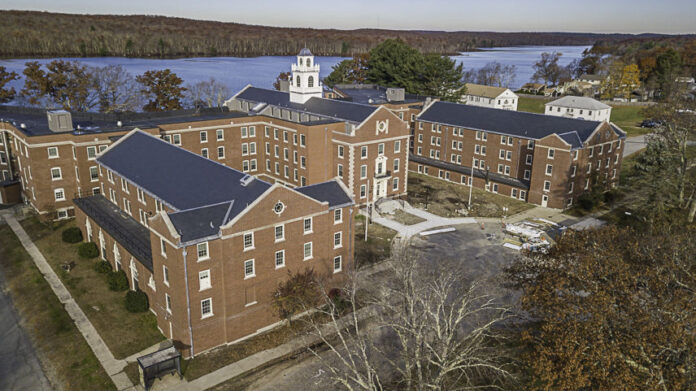
PROVIDENCE – With staffing shortages hitting crisis levels, the R.I. Department of Health is allowing medical facilities in the state to draw on employees who are positive for COVID-19 to show up for work.
And two have already done so over the past weekend, including a Coventry nursing home and a state-run psychiatric hospital in Cranston.
However, neither of those two facilities – the Respiratory and Rehabilitation Center of Rhode Island and Eleanor Slater Hospital – are currently bringing in COVID-19-positive employees, according to the Department of Health, nor is any other hospital or nursing home in the state.
Joseph Wendelken, a spokesperson for the Department of Health, said the new policy enacted on Dec. 31 dovetails with updated isolation and quarantine guidance released on Dec. 23 by the Centers for Disease Control and Prevention.
“Like many other states throughout the country, Rhode Island aligned our quarantine and isolation guidance with the CDC’s guidance,” Wendelken said in an email. “The CDC recognized that states across the country are experiencing health care worker shortages. According to the CDC, if a hospital or nursing home is experiencing a significant staffing challenge, facility administrations may make a determination on the need to have a COVID-19 positive health care provider work.”
The R.I. Department of Health said health care facilities are first required to alert the department about circumstances that necessitate COVID-19 positive employees to come into work. And the department is advising facilities to use these employees to treat patients who are already infected with COVID-19, and to opt for employees who may be asymptomatic or carry mild symptoms.
“Facility administrators should be using their clinical judgement in making staffing decisions,” Wendelken said. “For example, a facility may opt for a COVID-19 positive worker to only care for COVID-19 positive patients. … Asymptomatic or mildly symptomatic workers should be considered first in these instances, and of course masks are required.”
The policy led to debate among Republican politicians and at least one health care industry representative about why the state is still barring noninfected, unvaccinated health care workers from stepping in.
“How is this safer than mandating healthy, unvaccinated COVID-19 negative health care workers to lose their jobs or leaving hundreds of homebound patients without care as a result of [R.I. Department of Health] emergency regulations?” said Nicholas Oliver, executive director of the Rhode Island Partnership for Home Care, in a recent tweet. “We need a consistent policy for all health care settings.”
Wendelken said the amount of unvaccinated workers who left the industry due to the state’s vaccine requirements is very small, with just 1% of Lifespan Corp. employees losing their jobs as a result. And these unvaccinated employees would be putting their health at a greater danger than vaccinated employees by being present in a health care setting, and they could spread COVID-19 to others at a greater rate, he said.
“An unvaccinated health care worker is at greater individual risk, given how many COVID-19 positive patients are in facilities,” Wendelken said. “Additionally, someone who is vaccinated and who tested positive for COVID-19 has a much lower viral load, compared to someone who is COVID positive and unvaccinated. This means that the likelihood of transmission is much less. A very small number of health care workers were not vaccinated.”
The state’s largest health care union issued a statement opposing the decision to allow COVID-19-positive health care workers to stay on the job.
“First and foremost, we believe that it’s critically important to ensure a healthy workforce in which health care workers are not spreading the virus to other workers and, more importantly, to at-risk patients who are susceptible to the most harmful effects of the virus,” said Lynn Blais, president of the United Nurses and Allied Professionals, which represents more than 7,000 nurses and health professionals.
“Second, this policy will likely come with the unintended consequence of exacerbating staffing shortages when more workers in hospitals become infected with COVID-19, get sick, and are forced to quarantine,” she said. “UNAP believes that only health care workers who are asymptomatic, have a negative test, and continue to wear a mask should be returning to the workforce after five days.”
(ADDS last three paragraphs with union comment.)
Marc Larocque is a PBN staff writer. Contact him at Larocque@PBN.com. You may also follow him on Twitter @LaRockPBN.











